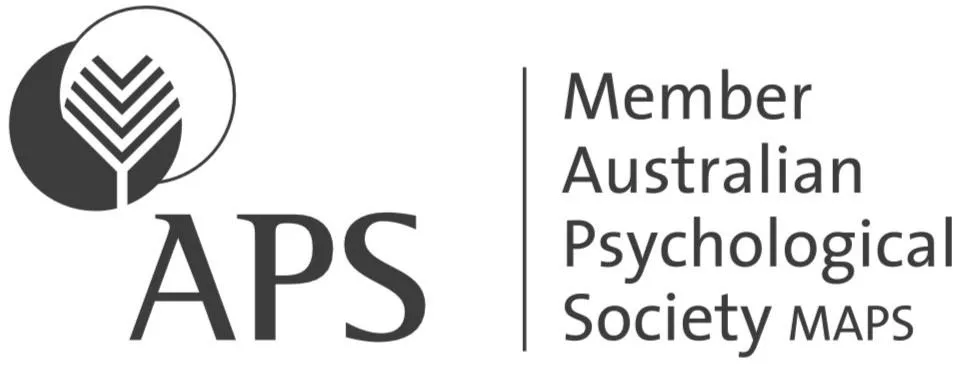Our Privacy Policy
Family Counselling Support Network
Family Counselling Support Network is committed to providing quality services to you and this policy outlines our ongoing obligations to you in respect of how we manage your Personal Information.
We have adopted the National Privacy Principles (NPPs) contained in the Privacy Act 1988 (Cth) (the Privacy Act). The NPPs govern the way in which we collect, use, disclose, store, secure and dispose of your Personal Information.
A copy of the National Privacy Principles may be obtained from the website of The Office of the Australian Information Commissioner at www.aoic.gov.au
WHAT IS PERSONAL INFORMATION AND WHY DO WE COLLECT IT?
Personal Information is information or an opinion that identifies an individual. Examples of Personal Information we collect include: names, addresses, email addresses, phone numbers.
This Personal Information is obtained in many ways including by telephone, by email, and via our website www.familycounsellingsupportnetwork.com
We collect your Personal Information for the primary purpose of providing our services to you, and marketing. We may also use your Personal Information for secondary purposes closely related to the primary purpose, in circumstances where you would reasonably expect such use or disclosure. You may unsubscribe from our mailing/marketing lists at any time by contacting us in writing.
When we collect Personal Information we will, where appropriate and where possible, explain to you why we are collecting the information and how we plan to use it.
SENSITIVE INFORMATION
Sensitive information is defined in the Privacy Act to include information or opinion about such things as an individual's racial or ethnic origin, political opinions, membership of a political association, religious or philosophical beliefs, membership of a trade union or other professional body, criminal record or health information.
Sensitive information will be used by us only:
• For the primary purpose for which it was obtained
• For a secondary purpose that is directly related to the primary purpose
• With your consent; or where required or authorised by law.
DISCLOSURE OF PERSONAL INFORMATION
Your Personal Information may be disclosed in a number of circumstances including the following:
• Third parties where you consent to the use or disclosure; and
• Where required or authorised by law.
SECURITY OF YOUR PERSONAL INFORMATION
Your Personal Information is stored in a manner that reasonably protects it from misuse and loss and from unauthorized access, modification or disclosure.
When your Personal Information is no longer needed for the purpose for which it was obtained, we will take reasonable steps to destroy or permanently de-identify your Personal Information. However, most of the Personal Information is or will be stored in client files which will be kept by us for a minimum of 7 years.
ACCESS TO YOUR PERSONAL INFORMATION
You may access the Personal Information we hold about you and to update and/or correct it, subject to certain exceptions. If you wish to access your Personal Information, please contact us in writing. We will not charge any fee for your access request, but may charge an administrative fee for providing a copy of your Personal Information.
In order to protect your Personal Information we may require identification from you before releasing the requested information.
MAINTAINING THE QUALITY OF YOUR PERSONAL INFORMATION
It is an important to us that your Personal Information is up to date. We will take reasonable steps to make sure that your Personal Information is accurate, complete and up-to-date. If you find that the information we have is not up to date or is inaccurate, please advise us as soon as practicable so we can update our records and ensure we can continue to provide quality services to you.
POLICY UPDATES
This Policy may change from time to time and is available on our website.
PRIVACY POLICY COMPLAINTS AND ENQUIRIES
If you have any queries or complaints about our Privacy Policy
please contact us at info@familycounsellingsupportnetwork.com
Join the FREE Newsletter
We welcome you to SIGN UP to receive our monthly newsletter where we share some really useful resources, tips and updates on our upcoming workshops.

Questions about our
Services?
Medicare rebate or private medical insurance claim for psychological services?
Most clients prefer to book directly with with our counsellors. No referral is required to access this counselling service.
During the first session, you can discuss the benefits of seeking a Mental Health Care Plan from your GP should you wish to pursue this path moving forward and you are booking with a registered psychologist. If you require a Mental Health Care Plan (MHCP) you will need to make a long appointment with your GP and they will make an assessment about whether you are eligible.
All of our registered psychologists are registered with Medicare and you will need a referral from a GP if you wish to claim Medicare rebates. Under the Better Access program you can receive a partial rebate for up to 10 individual sessions in a calendar year.
All our psychologists are registered with private health insurance providers in Australia. If you have private health insurance, you may be eligible to claim rebates for psychological sessions. The level of cover and any applicable waiting periods vary between providers and depends on your extras cover policy.
To find out if you are eligible and/or how much funding you are entitled to claim for psychological sessions, please contact your private health insurance.
Where applicable, some of our psychologists also see clients who are self-managed or plan-managed through NDIS at the current rate for NDIS.
Cancellation or missed sessions policy
Given the nature of our support services, last minute cancellations are costly, and it means that other clients may miss out on receiving the required support. For cancellations within 48 hours of the scheduled appointment there is a $65 part fee payment. For less than 24 hours cancellation notice or a non-show, the full session fee will need to be charged. These fees are refunded however if the session can be filled at the last minute.
How are your counselling and coaching sessions held?
We know our clients are time poor. For your convenience, all our counselling or coaching sessions are now available online via Zoom.
You can book your appointment online via this website.
Zoom allows us to connect with you via video and audio. It just requires you to click on a link to join. You can sign up to Zoom to create a FREE account and download the Zoom Client for Meetings. Zoom does require internet connections.
After you book you will be sent a reminder about the booking and emailed a link to connect at the booked time. You are also likely to be sent a client information form to complete prior to your initial consultation to enable our Counsellors and Coaches to be better prepared for your first meeting.
If you are unable to make any of the dates available, please email us to see if we can accommodate an alternate time for you: [email protected]
If you live in Brisbane or the Gold Coast, Queensland, we are available for face to face consultations. Please email us at [email protected] if you would like to arrange an in person appointment.

Webinars - how they are received, transcripts and worksheets
Our clients have requested webinars and programs for years that allow them to access excellent support and guidance and a toolkit they can use to move forward. Many of our clients are time poor so these webinars give them the chance to get the support and resources in their time. The webinars can be purchased on line. The link, transcript and workbooks/worksheets and videos (where applicable)are then sent with the email. Sign up to our email today to receive updates on all our webinars, programs and resources.

Catch up on our latest blogs

Telling your Partner you want a Separation or Divorce
Regardless of who has made the decision or how your relationship has been to date, telling your partner that you want a separation or divorce is likely to be one of the most difficult, painful and memorable conversations you are likely to ever have. It is often a conversation that both parties remember clearly for the rest of their lives, so take some small steps to get it right.
It is important to realise that the way in which you discuss this may set the tone for your future discussions and potentially increase OR decrease your chance of positively negotiating your future conversations regarding financials, family and the next phase of your lives.
TIPS
Planning the discussion
• Have you considered having counselling together or at least personally speaking with a counsellor, psychologist, separation coach to help you consider your emotions, options and plans. Family Counselling Support Network can assist. www.familycounsellingsupportnetwork.com. Speaking with your GP is often also highly recommended to ensure there are no medical reasons contributing to the way you are feeling.
• Make sure you are certain of your final decision before you break the news to your partner as it is very stressful and often emotionally difficult to come back from this type of disclosure if you change your mind.
• Consider what will be the best day, time and conditions to have this discussion so it is as amicable, respectful and calm as possible under the difficult circumstances. Ideally it should be done face to face (not via a text, a note, or via a third party) and when no one else is home, especially children. You may choose to go to a neutral place such as coffee in a park where you aren’t distracted or conscious of being the object of attention. Most importantly, make sure that your intention is not blurted out in the middle of heated discussions and avoid late at night or on a day which corresponds with important events such as celebrations or family holidays.
• Consider how will you remain safe throughout this discussion and afterwards? Do you need to consider having the discussion in conjunction with a counsellor? If you are leaving an abusive or violent partner, do you need a safe exit plan, a restraining order or emergency accommodation assistance? In an emergency call police 000.
• Have you considered your partner’s reaction, the likely questions that you will be asked and how you will respond to them? Are they likely to be surprised? Deeply emotional? Aggressive? Some people consider marriage a lifelong commitment and may be really surprised by your announcement. Often people are in denial and do not seem to absorb what is being said and perhaps the finality of your decision. Watch for the possible breadth of reactions, acknowledge their feelings and show empathy.
• Who is staying in the home and who is potentially leaving, and where the children and pets will immediately go, are likely to be the first issues raised. It is important to have thought through these issues so that solutions are more easily explored.
Planning the discussion
• When delivering your decision to separate or divorce, the key is to be kind, direct and not highly emotional. Examples of how you might raise it include, “I am unhappy and would like to live apart for six months. During that time, I am open to having more counselling to see if we can make it work.” Or “We have tried counselling but unfortunately I am still not happy and I would like to move towards a more permanent step to separate” or “I have been unhappy in our relationship for a long time and I would like to see if being apart improves things for us all.”
• Then deliver the terms, for example, “I would like you to live at your parents for a few weeks and I can remain here with the children until we work out the next steps”, or “I am going to visit my parents for the week to give you time and space to move out,” or perhaps if you are amicable and it is safe, you could suggest, “You are welcome to stay in the other bedroom until we sort out what we are going to do next.”
• Regardless of how the other person reacts, try not to get highly defensive, blaming and remember to acknowledge their emotions. Try to remain calm and supportive and continue to state your position - “I am sorry, I know this isn’t what you want to hear but we have tried our best, and I can’t do this anymore and I want to separate."
• Give your partner time and space to process what you have said. Don’t immediately proceed with details of what you are proposing in terms of parental and financial settlements, but it is a good time to suggest you want to work with them to ensure you sort things out as amicably as possible as you move forward.
• Try to calmly agree together on how and when to tell the children and other family members and friends, allowing a respectful period of time to digest the details.



We are committed to protecting your personal information and respecting your privacy. This website uses cookies to analyze website traffic and optimise your website experience. By accepting our use of cookies, your data will be aggregated with all other user data.
DISCLAIMER: The material contained on this website is for general educational and information purposes only and is not a substitute for professional legal, financial, medical or psychological advice or care. While every care has been taken in the information provided, no legal responsibility or liability is accepted, warranted or implied by the authors or Family Counselling Support Network and any liability is hereby expressly disclaimed. For specific advice please contact us at [email protected]. All information contained on the website remains the intellectual property of Family Counselling Support Network and is for your personal educational use only. The information must not be reproduced or distributed without the express permission of Family Counselling Support Network.
We are committed to providing an inclusive and accessible environment where people and communities of all identities and backgrounds are accepted, safe and celebrated.
Privacy Policy | Terms and Conditions
